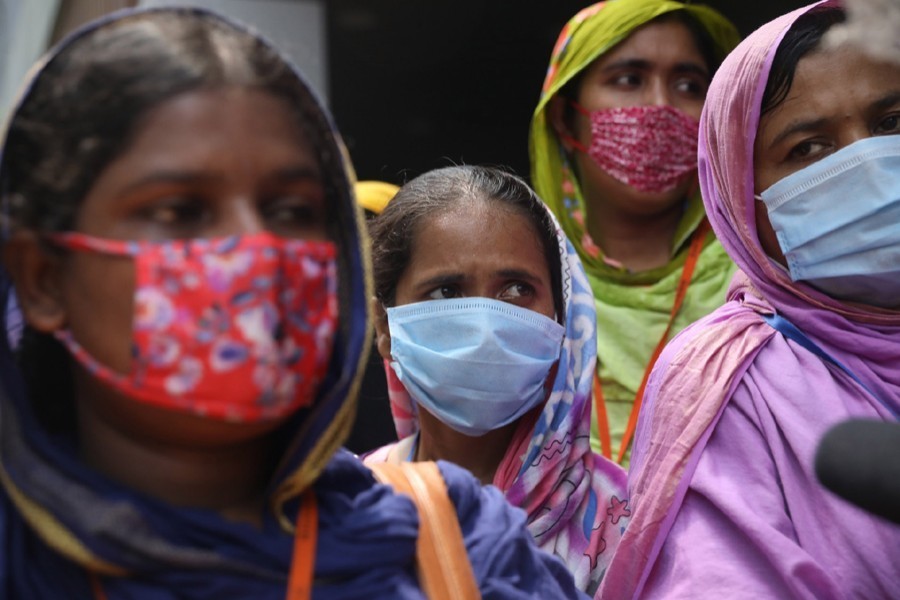
Published :
Updated :

With news making the rounds that a number of new overseas Covid-19 variants have already entered Bangladesh, lots of people have started feeling edgy. The strains allegedly include the pandemic virus detected in South Africa. Bangladesh has yet to successfully end its battle against the pandemic's first onslaught. Against this backdrop, the bout of yet another outbreak of Covid-19 is set to fill the alert people with a fresh spell of worry. Amid the unremitting strikes of the insidious pandemic, the DGHS has placed its proposal for a step not to reopen the educational institutions. It has also suggested the government not to go ahead with holding the public examinations. As a last-ditch attempt to contain the dreaded second wave of the pandemic, the DGHS officials placed the proposal for a 'complete lockdown'. The measure is more stringent in its enforcement of the pandemic-related health guidelines than seen during the 'shutdowns'.
Woefully, the general people's reckless flouting of the basic anti-Covid-19 restrictions featured the previous phase of shutdown enforced on Dhaka and other cities. Although the PMO has not come up with any clear endorsement of the DGHS proposal of a lockdown, its worries about the situation are understood. As almost the whole world witnesses a resurgence of the pandemic, turned virulent with the freshly mutated variants, Bangladesh can ill afford to remain lackadaisical over the development. Meanwhile, the countrywide phase-1 vaccination drive has been more or less participatory. With the rumour-fed scepticism preventing many from visiting the vaccination centres and the 'period' of wait-and-see now over, Bangladesh is supposed to be prepared to face the pandemic squarely. After the first phase of inoculation is over, the vaccinated people, upon developing resistance to a certain extent, are said to be given the 2nd dose eight weeks after the 1st one. More vaccines are reportedly on the way.
Meanwhile, besides the impact of the pandemic on the Bangladesh health sector, it is feared to chip away at the day-to-day kitchen market. A 'complete lockdown' may exact a heavy toll on the country's urban people, still struggling to get back to the pre-pandemic period. The erratic price hike of essentials blamed on supply disruptions during the last shutdown is set to stage a comeback. The country has yet to see a full-scale panic buying. But the rumour mill does not sit idle. Many spend little time to make the gullible sections of society to be convinced of an approaching crisis of the basic food items. These campaigns normally lead to the sprees of panic buying.
In the meantime, the holy month of Ramzan is less than a month away. The market of the special Ramzan food items and their ingredients initially keeps a semblance of business ethics, which begins falling apart in a couple of weeks. This phenomenon keeps recurring year in and year out. For keeping the cabalistic market manipulators from engaging in their dark games, preventive measures ought to be mulled without any delay. Smooth supply of food items, especially rice, should be ensured from now. It is deemed necessary for helping the government deal with a heated market in the times of a feared comeback of Covid-19 and Ramzan period. Free economies do not encourage governments to intervene in markets. But monitoring during emergencies cannot be avoided. In order to keep a rein on the often-unwieldy markets, the authorities are expected to put in their best of efforts. This will, surely, enable the people to tide the coming adverse times over -- with ease.


 For all latest news, follow The Financial Express Google News channel.
For all latest news, follow The Financial Express Google News channel.